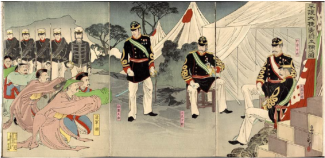Event

The “rise of Japan” and the “fall of China” in the late 19th century are story lines that dominated Sinology and Japanology in the 20th century. The competing/complementary narratives constructed by the victors and the losers of wars on the ground and at sea enshroud the national memory of the past in a thick ideological fog. Seeing through the fog created by the “First” Sino-Japanese War in 1894-95 allows us to place Sino-Japanese cultural interactions before 1894 in a new light with less teleology about the events and fewer blind spots. The Meiji “rise of Japan” as event and narrative empowered uniquely “modernist” views of out-of-date Chinese art and culture, the failure of Chinese history, and conveniently provided Chinese revolutionaries with a “failed China” in a post-1895 East Asian world.
Benjamin A. Elman is the Professor of East Asian Studies and History at Princeton Univeristy. Professor Elman received his PhD in Oriental Studies from the University of Pennsylvania. His teaching and research focus on Chinese intellectual and cultural history, 1000-1900; history of science in China, 1600-1930; history of education in late imperial China; and Sino-Japanese cultural history, 1600-1850. His publications include: From Philosophy To Philology (1984, 1990, 2001); Classicism, Politics, and Kinship (1990); A Cultural History of Civil Examinations in Late Imperial China (2000).